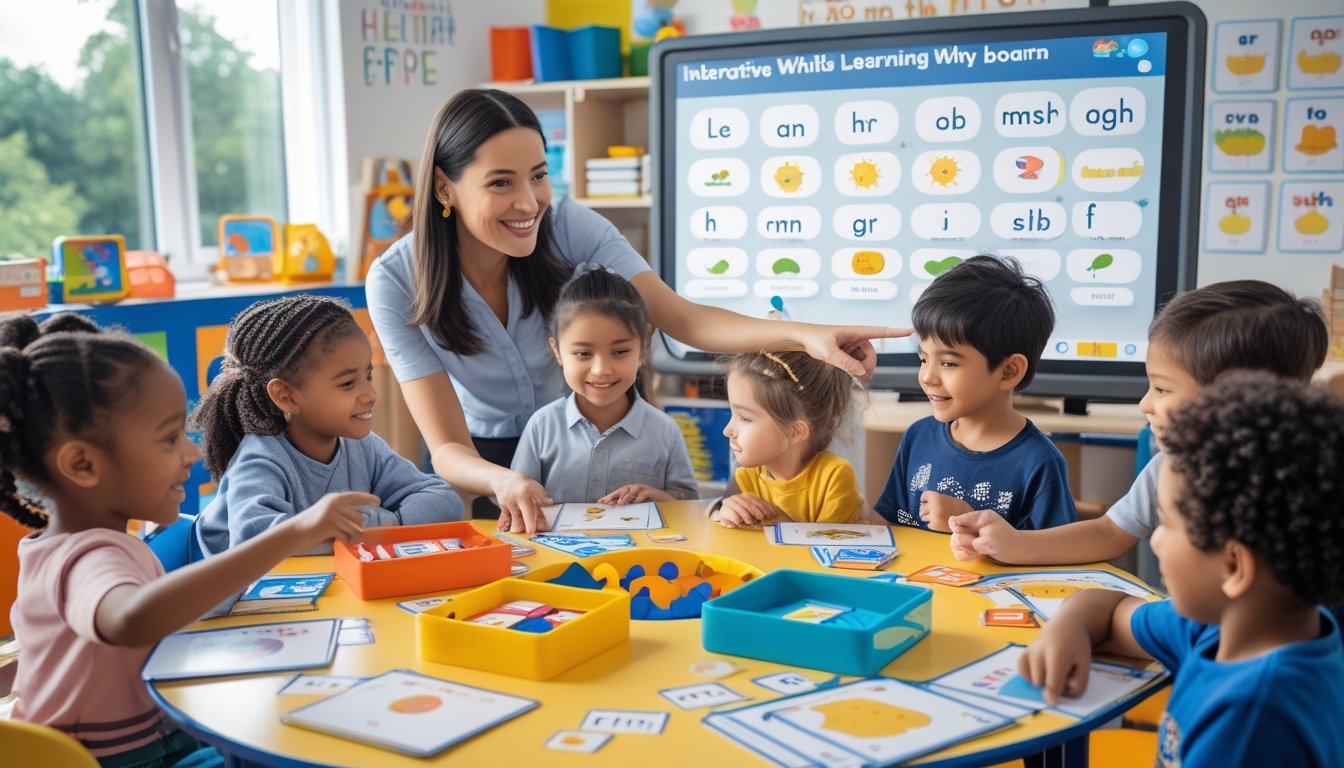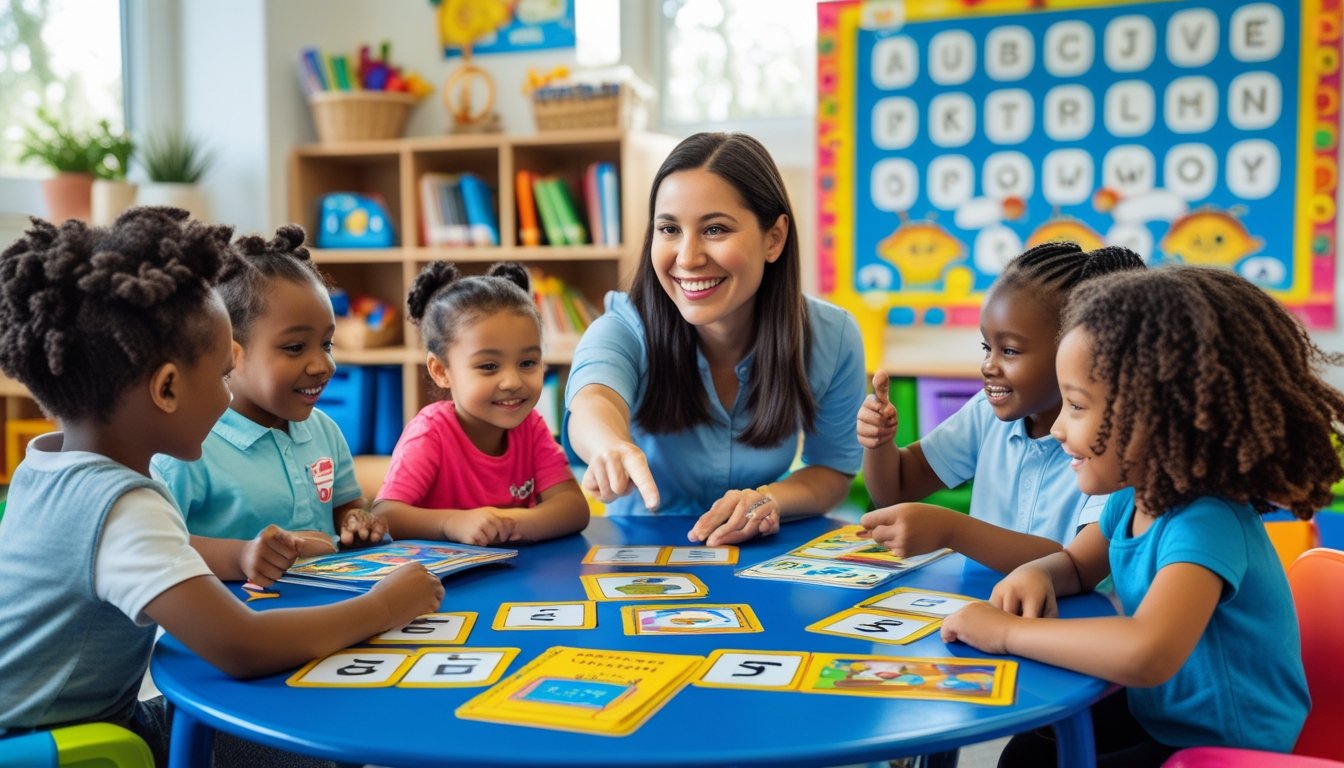Late updated: 20 Jul 2025 08:07
Written by:
Strategies for Encouraging Young Learners' Language Skills: Effective Approaches
As we navigate the intricate journey of early language development, it's evident that nurturing language skills in young children demands a thoughtful and engaging approach. The importance of laying a strong linguistic foundation cannot be overstated, as it profoundly influences a child's academic journey and social interactions. By encouraging language development through interactive and playful strategies, we enable children to express themselves more effectively while boosting their social confidence.

The journey to enhance language skills involves various practical strategies that can seamlessly fit into daily routines, making learning both natural and enjoyable. From reading aloud and engaging in story creation to interactive play, the opportunities to spark and sustain a child’s interest in language are abundant. These methods not only enhance vocabulary but also foster essential social skills by immersing young learners in dynamic learning experiences.
It's essential for parents and educators to remain resourceful and intuitive in supporting language development. Paying attention to the unique needs of each child and adapting strategies accordingly can make a significant difference. This blend of sensitivity and creativity in our approach ensures that we are setting a strong foundation for lifelong learning and communication.
Key Takeaways
- Language skills are crucial for academic and social success.
- Interactive play and reading are effective strategies.
- Adapting approaches to individual needs enhances learning.
Fundamental Strategies to Enhance Language Skills in Young Learners
To boost language skills in young learners, we should focus on creating immersive environments, holding insightful conversations, and encouraging activities like reading, storytelling, and play. These methods provide vital support in building language foundations.
Creating a Language-Rich Environment
A language-rich environment immerses children in spoken and written words, promoting language skills and literacy. We can fill spaces with diverse reading materials, such as picture books and colourful charts. Interactive elements, like labelled items and accessible writing materials, foster phonemic awareness and literacy skills from an early age.
Using nursery rhymes and songs can enhance vocabularies, rhythm, and phonemic awareness, creating a rich auditory experience. Displays with labels showcase words, assisting children in word recognition.
Engaging in Meaningful Conversations
Engaging young learners in meaningful conversations encourages language development and enhances their ability to communicate. We should utilise open-ended questions, which allow children to express thoughts and engage critically with topics. These conversations can cover daily activities or specific themes relevant to their experiences.
Active listening is crucial, as it encourages thoughtful responses and extends discussions. Encouraging children to ask questions nurtures curiosity and further develops conversational skills.
Encouraging Reading Aloud and Storytelling
Reading aloud and storytelling are powerful tools in enhancing literacy skills. These activities offer interactive storytelling elements that captivate children's imaginations. We can select age-appropriate books and involve children by asking predictive and reflective questions during reading sessions. This engagement improves comprehension and embarks them on a journey of curiosity and learning.
Encouraging children to narrate their own stories fosters creativity and language skills. This practice supports academic success in later years, building a strong foundation from early childhood.
The Power of Play and Social Interaction
Playtime and social interaction play crucial roles in language development. During play, children experiment with language, practising new words and forming sentences in a relaxed environment. Role-playing games and cooperative activities facilitate speaking skills and enhance social understanding.
Organising group activities encourage children to interact, exchange ideas, and learn from peers. These interactions bolster communication skills and social competence. Through structured play and free interaction, children learn the subtleties of tone, body language, and timing, all vital components of effective communication.
Practical Approaches and Tools for Parents and Educators

Fostering young learners' language skills is vital for their overall development. Both parents and educators play an essential role by incorporating strategic methods at home, utilising early intervention, and selecting valuable educational apps.
Supporting Language Skills at Home
At home, parents can create an enriching environment that promotes language development. Engaging children in daily conversations encourages them to express themselves and expand their vocabulary.
Reading aloud together is another fundamental activity. Choosing a variety of age-appropriate books helps maintain interest and introduces new words and concepts. Additionally, storytelling fosters imagination and enhances comprehension skills.
Interactive games, such as word puzzles or rhyming tasks, make learning fun. They improve communication skills and can be easily integrated into daily routines, making language practice an enjoyable part of the day.
Best Practices for Early Intervention
Early intervention is crucial in addressing potential language delays. Recognising and acting upon early signs ensures that children receive the support they need.
Incorporating multisensory techniques can benefit many young learners. This approach combines sight, sound, and touch, which can be especially effective for children with diverse learning needs.
Engaging specialists, such as speech therapists, offers tailored support. These professionals provide targeted exercises and strategies that can be integrated into both home and classroom activities, bridging any gaps in language acquisition.
Regular monitoring of progress is fundamental. It allows us to adjust strategies as needed, ensuring consistent improvement in language skills.
Selecting Beneficial Educational Apps
With technology's advancement, educational apps have become valuable tools for language learning. These apps can supplement traditional methods when chosen wisely.
We should focus on apps that foster interaction and engagement, encouraging children to use their language skills actively. Look for features that include voice recognition and response, as these simulate natural conversation environments.
Apps that adapt to the learner’s level keep them challenged yet motivated. This helps in maintaining interest while effectively developing language proficiency.
Parental involvement when selecting and using apps ensures that content is suitable and aligns with educational goals. Parents acting as guides in this digital journey can significantly enhance the learning experience.
Frequently Asked Questions

In this section, we address common inquiries regarding language development strategies for young learners. These insights cover techniques tailored to different age groups and practical applications within educational settings.
What are effective techniques to enhance language development in early childhood?
Early childhood is a critical period for language acquisition. Reading aloud daily and engaging children in conversations significantly aid development. Using gestures and visual aids also helps children understand and learn new words. Encouraging imaginative play where children can express themselves freely is equally important.
In what ways can language development be promoted within the classroom environment?
Creating a language-rich classroom environment is vital. Displaying diverse forms of text and imagery, organising interactive story sessions, and encouraging group discussions enrich language exposure. Implementing structured routines that include song and rhyme games can also bolster vocabulary acquisition and communication skills.
Which activities can support speech and language development in toddlers aged 1-2 years?
For toddlers, activities involving repetition and rhymes, such as nursery rhymes and simple songs, are effective. Interactive games, like peek-a-boo and naming familiar objects, support word recognition and pronunciation. Providing opportunities for toddlers to use language during play can be impactful as well.
Could you suggest some language stimulation strategies suitable for children aged 6-12 years?
For older children, encouraging journaling or creative writing enhances their ability to express thoughts. Holding debates or discussions on topics of interest can develop complex language use and critical thinking. Introducing them to books that align with their reading level and interests can also foster language growth.
What are proven speech and language activities for children aged 3-5 years?
Preschoolers benefit from storytelling and role-playing activities, which stimulate imagination and language expression. Picture books with rich illustrations can spark conversations, enhancing comprehension and vocabulary. Simple board games that require following instructions can improve listening and speaking skills.
How can educators incorporate language development strategies into their daily curriculum?
Educators can integrate language development by embedding it into all subjects. Utilising subject-specific vocabulary, encouraging collaborative projects, and incorporating multimedia tools can enhance engagement and understanding. Consistently using open-ended questions promotes deeper interaction and reflection, fostering an enriched learning environment.
